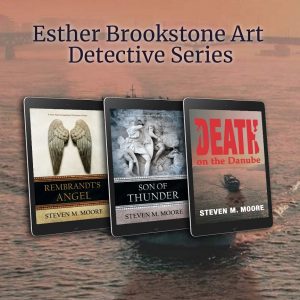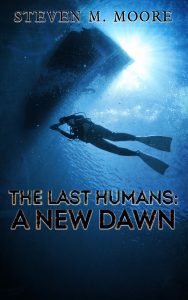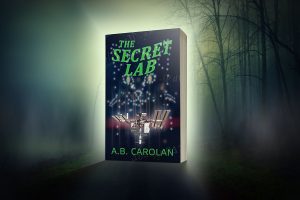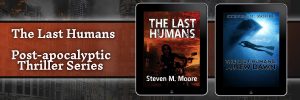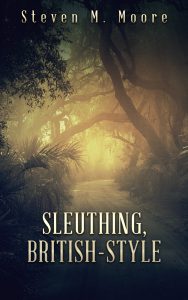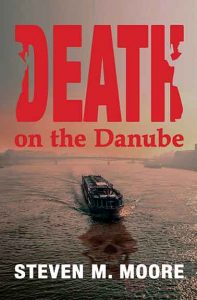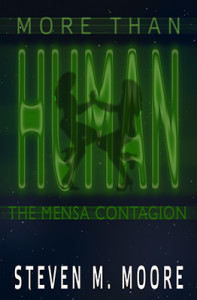“Friday Fiction” Series: Mr. Gualchmai, Chapter One…
January 15th, 2021[Note from Steve: In the collection Sleuthing, British-Style, I introduce DI Clarke and DS Blake in three short stories as a homage to British-style mysteries. While the following didn’t make it to novel status (as the British coppers might have wanted, and I suggested might eventually happen one day), or the self-imposed editorial deadline for that collection (as a test case for Draft2Digital), you might find the following short story equally entertaining.]
Mr. Gualchmai
Copyright 2021, Steven M. Moore
Chapter One
DI Clarke’s search for a new winter coat had been interrupted by a domestic squabble. Constables were taking the drunken bully to arraignment and jail, his family jewels probably still aching from Clarke’s well-placed kick; his bruised and battered girlfriend had been taken to the hospital, lucky that her only serious injury was a broken arm; and their two children were under the care of a family liaison officer, pending legal proceedings to protect them.
Clarke usually went into Oxford to shop if she had the time, so it had been lucky for the woman and her children she had decided to hit the smaller local Riversford shopping district first. The DI decided to celebrate one more win against misogynist brutes by enjoying a mash up in a small coffee bar she favored. Usually replete with noisy students from the various colleges at Oxford University, even that far out from the city, the spot was quiet now. Michaelmas term was over and few students were in the area. Some faculty had also made their exodus for the lengthy holiday.
The little café, if the spot with its four little tables and three stools at a counter deserved such an appellation, sat on a narrow side street, yet the locals looked for it. It was mostly empty now, and the street also empty of traffic. It was too early for Christmas shoppers, and the gray, dreary day wouldn’t have beckoned to many shoppers at any rate. She liked to shop in those conditions, though. The denser the crowds, the more obnoxious and pushy they became.
From her small table, she was in the perfect spot to see the explosion in the building across the street from her. Flames shot out third-story windows as they first engulfed that floor. The conflagration had seemed instantaneous.
“Say, ma’am, you didn’t pay,” said the waiter as she dashed out the door.
***
“You arrived quickly,” Clarke said to DS Blake. “Aren’t you supposed to be scanning those communication records?”
Logan Blake turned a bit red. “I met Sally for lunch. We were just down the street.”
Clarke only nodded and continued to watch the flames consume the building. But the brigade soon had the fire under control and carried out three bodies. Clarke recognized the assistant fire chief watching the exodus and moved forward. Blake followed.
“What’s the story, Archie?” she asked. “Gas leak?”
She’d recognize those watery blue eyes, fat jowls, and walrus-style mustache anywhere; they belied the man’s real conditioning. Huge Archibald Watson was an intelligent man who was strong enough to carry either Clarke or Blake down a ladder on one shoulder.
“Our team is just beginning what we do after any fire, Patty. For now, this looks like an accident. Maybe a shorted electrical wire? Building’s old, but fortunately mostly empty. The victims are the building’s owner, his wife, and son.”
“Tragic,” said Blake. “The building is in bad shape. I suppose the other tenants were students. How do you know the older male is the building’s owner?”
“Recognized him. Whole family died of smoke inhalation. Only the young lad has any burns. One nearest the apartment’s door, they tell me. ‘Scuse.”
Watson moved forward to meet a tall man who had just exited the building. They conversed a bit and then the fireman returned to the two detectives.

